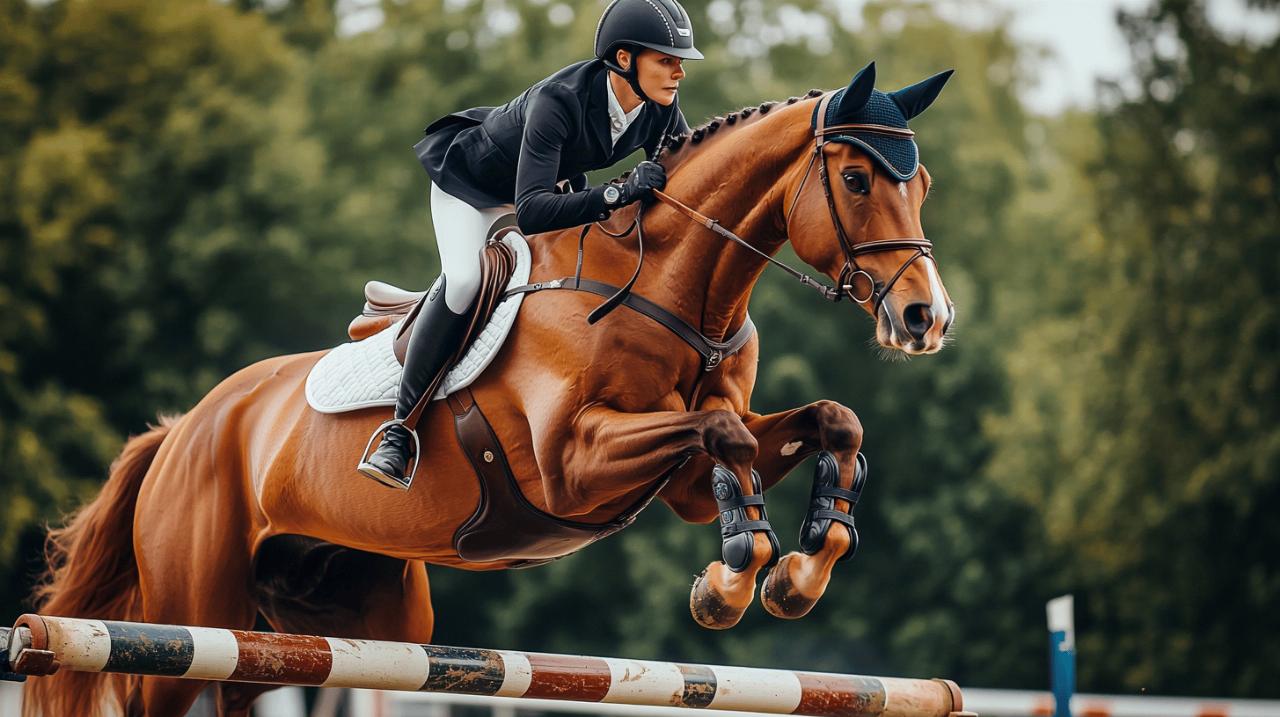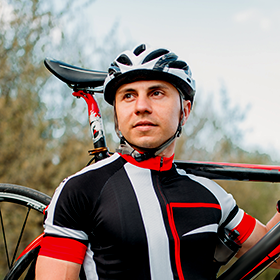Venturing into the world of equestrian sports in Britain can be an exhilarating journey, but it comes with its fair share of official requirements. Whether you're a seasoned rider or just starting out, understanding how to obtain your equestrian licence through accredited riding schools is essential for participating in official events and ensuring you're properly covered. This comprehensive guide will walk you through everything you need to know about equestrian licensing in the UK.
Joining a bef-affiliated riding club
The first step toward obtaining your equestrian licence is joining a riding club that's affiliated with the British Equestrian Federation (BEF). These clubs provide the necessary structure and support for riders at all levels, while ensuring compliance with national standards. ABRS+ approved establishments are particularly well-regarded in the industry, offering high-quality horse riding instruction and maintaining excellent animal welfare standards.
Finding the Right Club for Your Riding Goals
When searching for the perfect riding club, consider what you hope to achieve with your equestrian journey. Some clubs specialise in dressage, while others focus on show jumping or eventing. Visit several establishments to get a feel for their teaching style and facilities. Accredited riding schools will display their certification prominently, which indicates they've met rigorous standards for equine care, instruction quality, and safety protocols. Many ABRS+ approved schools offer taster sessions that allow you to experience their teaching approach before committing to membership.
What to Expect During the Membership Process
Once you've chosen a suitable riding club, the membership process is straightforward. The club staff will guide you through each step, explaining the requirements and helping you complete the necessary paperwork. You'll likely need to demonstrate your current riding ability so instructors can place you in appropriate classes. Most clubs offer various membership tiers based on how frequently you plan to ride and what facilities you'll need access to. During this process, your local club will explain how to apply for your equestrian licence, making what might seem like a complex procedure much more manageable.
Essential documentation for your licence application
Preparing the right documentation is crucial for a smooth licence application. The British Equestrian Federation and local riding clubs require certain paperwork to ensure all riders meet safety and administrative standards. Gathering these documents in advance can save you considerable time and prevent delays in processing your application.
Medical certificates and health requirements
A key component of your licence application is proving you're physically fit for riding activities. You'll need to obtain a medical certificate from your GP confirming your fitness to participate in equestrian sports. Some clubs might also require you to complete a health questionnaire detailing any pre-existing conditions or allergies that could affect your riding. These requirements aren't meant to exclude anyone but rather to ensure that appropriate safety measures are in place for all participants. Your club can advise on exactly what medical documentation is needed based on your age and the type of riding you plan to do.
Insurance and membership number details
Insurance coverage is non-negotiable in the equestrian world. Many clubs will want to see proof of personal insurance before finalising your membership. This typically includes public liability insurance, which covers you if your actions cause injury to others or damage to property. Upon completing your registration, you'll receive a membership number that serves as your unique identifier within the federation system. This number is essential for entering competitions, tracking your progression, and verifying your credentials at events. Store this information securely as you'll need it frequently throughout your equestrian activities.
Benefits of Having an Equestrian Licence
An equestrian licence isn't just a formality – it opens doors to numerous opportunities within the horse riding community and provides important protections for riders. Understanding these benefits can help you appreciate the value of maintaining a valid licence.
Access to Official Competitions and Events
One of the primary advantages of holding an equestrian licence is the ability to participate in sanctioned competitions and events across the country. These range from local shows perfect for beginners to prestigious national events for more experienced riders. Licensed events are run according to standardised rules and judging criteria, ensuring fair competition for all participants. Additionally, your performance in these official events is recorded, allowing you to track your progress and work toward qualifying for higher-level competitions. Many riders find that the structured environment of licensed events provides motivation and clear goals for their training efforts.
Safety and Insurance Coverage for Riders
Safety is paramount in equestrian activities, and your licence plays a crucial role in maintaining high safety standards. Licensed events must adhere to strict safety protocols, including proper arena conditions, qualified officials, and emergency response plans. Furthermore, your licence typically includes insurance coverage that protects you in case of accidents involving your horse. This coverage can be invaluable, considering the inherent risks associated with horse riding. The British Equestrian Federation also uses licensing to ensure all participants are aware of current safety standards, including up-to-date helmet requirements that conform to the latest protective equipment guidelines.
Maintaining your equestrian licence
Obtaining your licence is just the beginning – keeping it current requires attention to renewal procedures and ongoing compliance with federation standards. Staying on top of these requirements ensures uninterrupted access to the benefits your licence provides.
Renewal process and horse passports
Your equestrian licence will need regular renewal, typically annually, though some categories may offer multi-year options. The renewal process is generally simpler than the initial application, often requiring confirmation that your details remain unchanged and payment of the renewal fee. If you own a horse, you'll also need to maintain a valid horse passport, which is a legal requirement in the UK. This document contains essential information about your horse, including its unique identification, medical history, and ownership details. For competitions, both your licence and your horse's passport must be current and available for inspection by officials.
Resources and Support from the British Equestrian Federation
The British Equestrian Federation offers abundant resources to help licensed riders continue their development. These include training videos, technical guides, and educational materials covering various aspects of equestrian sports. Many clubs affiliated with the BEF host clinics and workshops specifically for licence holders, providing opportunities to refine skills under expert guidance. The federation also maintains helplines and support services to assist with licensing queries, rule clarifications, or concerns about equine welfare. By taking advantage of these resources, you can enhance your riding experience while ensuring you remain compliant with all licensing requirements.
Understanding abrs+ certification for riding schools
Fancy getting your equestrian licence in Britain? You'll need to know about proper certification first. The Association of British Riding Schools (ABRS+) offers approval and certification for riding schools, livery yards, and equine-assisted service providers across the UK. This charitable organisation works diligently to verify members, ensuring they provide safe and responsible services for horse enthusiasts of all levels.
ABRS+ certification is vital for commercial equine establishments. Under current legislation, businesses that hire out horses for riding or instruction must be licensed if they operate as a commercial venture. This doesn't apply to activities with trading income below the HMRC allowance, or to certain exemptions like pony parties where ponies aren't ridden, or military and police equestrian activities.
If you're looking to join a riding club, make sure it's affiliated with properly certified establishments. This ensures your training meets national standards and that you're covered by appropriate insurance whilst learning to ride.
The star rating system and compliance requirements
The ABRS+ certification works alongside local authority licensing through a comprehensive star rating system. Businesses must meet minimum standards to be licensed at all, with higher standards leading to better star ratings (4 or 5 stars) and longer licence validity periods (2-3 years).
New riding schools start with either a 1-year, 2-star licence (if meeting minimum standards) or a 2-year, 4-star licence (if meeting higher standards). They're considered high risk initially due to having no compliance history. Existing businesses that fail to meet minimum standards might still receive a 1-year, 1-star licence if the failings are mainly administrative and don't compromise animal welfare.
For riding schools to maintain their certification, they must keep detailed records for at least three years, demonstrate proper staffing competence and training, provide suitable environments for horses, and ensure proper diet and behaviour monitoring. The ABRS+ Flying Start Membership specifically assists new riding centres with the licensing process, guiding them through regulatory requirements.
Animal welfare standards and veterinary inspections
Veterinary inspections form a crucial part of the certification process. A listed veterinarian must conduct initial, renewal, and annual inspections of all riding establishments. Local authorities must also carry out unannounced inspections during the licence term to ensure ongoing compliance.
The animal welfare standards are rigorous. Horses under 3 years old, mares heavy with foal, or mares with unweaned foals cannot be hired out under any circumstances. Riding schools must demonstrate proper protection from pain, suffering, injury, and disease for all equines in their care.
ABRS+ provides extensive resources to help establishments maintain high welfare standards, including factsheets on laminitis, horse weight management, hay soaking, digital pulse taking, and equine parasite control. These resources help riding schools implement best practices in horse care and management.
Emergency plans must be in place, known to everyone on the premises, and readily available. A designated key holder must be within a reasonable travel distance (no more than 30 minutes) from the premises to respond to emergencies quickly.


